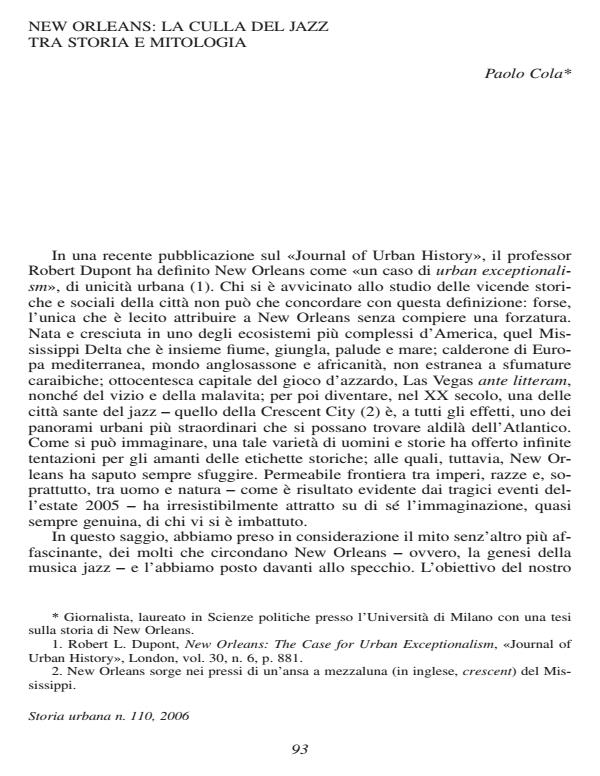New Orleans: la culla del jazz tra storia e mitologia
Journal title STORIA URBANA
Author/s Paolo Cola
Publishing Year 2006 Issue 2006/110
Language Italian Pages 29 P. File size 1791 KB
DOI
DOI is like a bar code for intellectual property: to have more infomation
click here
Below, you can see the article first page
If you want to buy this article in PDF format, you can do it, following the instructions to buy download credits

FrancoAngeli is member of Publishers International Linking Association, Inc (PILA), a not-for-profit association which run the CrossRef service enabling links to and from online scholarly content.
New Orleans is claimed to be the cradle of jazz worldwide. At first glance, it seems an unquestionable definition. After all, most of the pioneers of this extraordinary music were born in the so-called Crescent City: Louis Armstrong, Kid Ory, Sidney Bechet, King Oliver, Jerry Roll Morton and many others. Moreover, the first jazz record in the history of music was cut by the Original Dixieland Jazz Band, whose leader (Nick La Rocca) was born in New Orleans, too; and the first acknowledged style in jazz music was the New Orleans style. Finally, some areas of the city like Congo Square and Storyville have really become sacred places for jazz lovers. So, can we confirm the initial assertion? Is New Orleans the real birthplace of jazz music? Actually, the question is much more complicated than this. New Orleans has been, over its almost three centuries of existence, an absolutely peculiar city - with a unique history and an unequalled multiform identity, both socially and culturally. Over the decades many aspects of its history have become legendary, in particular those pertaining to the world of jazz. In this essay, I analysed the cultural myth cradle of jazz, trying to cast light upon the historical facts as New Orleans really played a primary role in the generation of jazz music and separate them from the legendary sides of the story.
Paolo Cola, New Orleans: la culla del jazz tra storia e mitologia in "STORIA URBANA " 110/2006, pp , DOI: